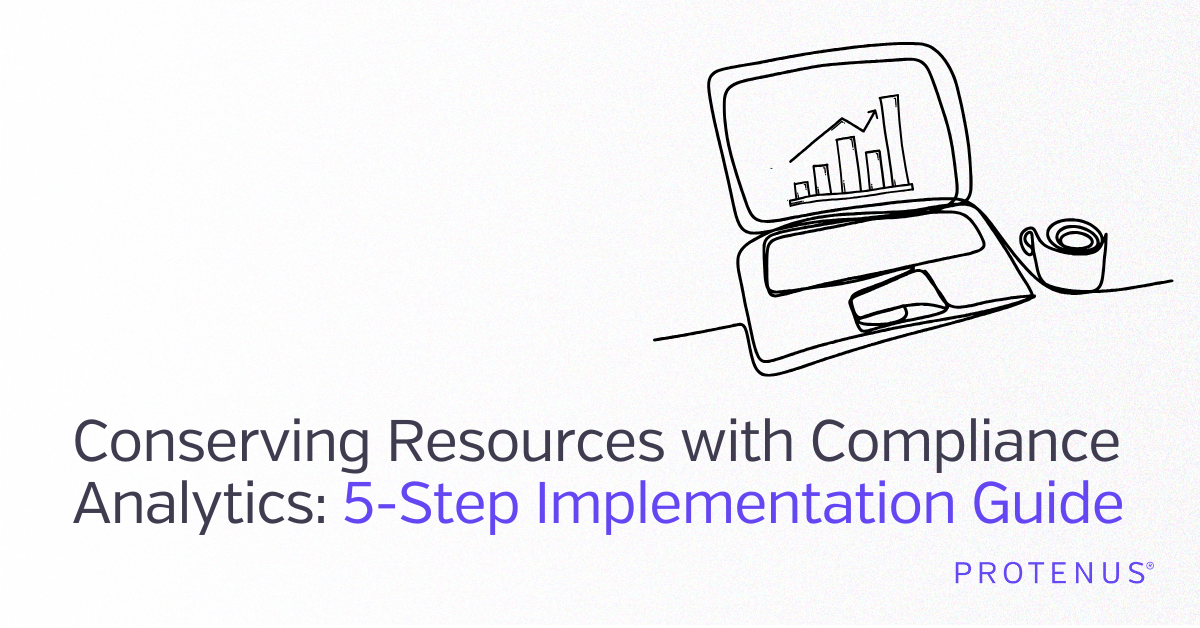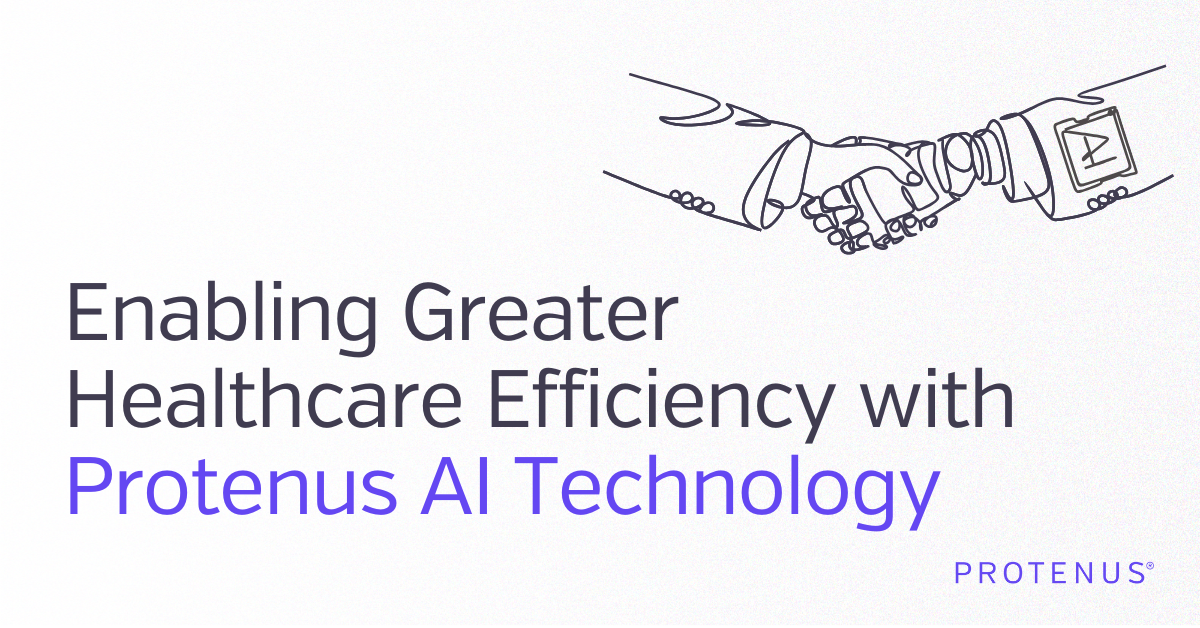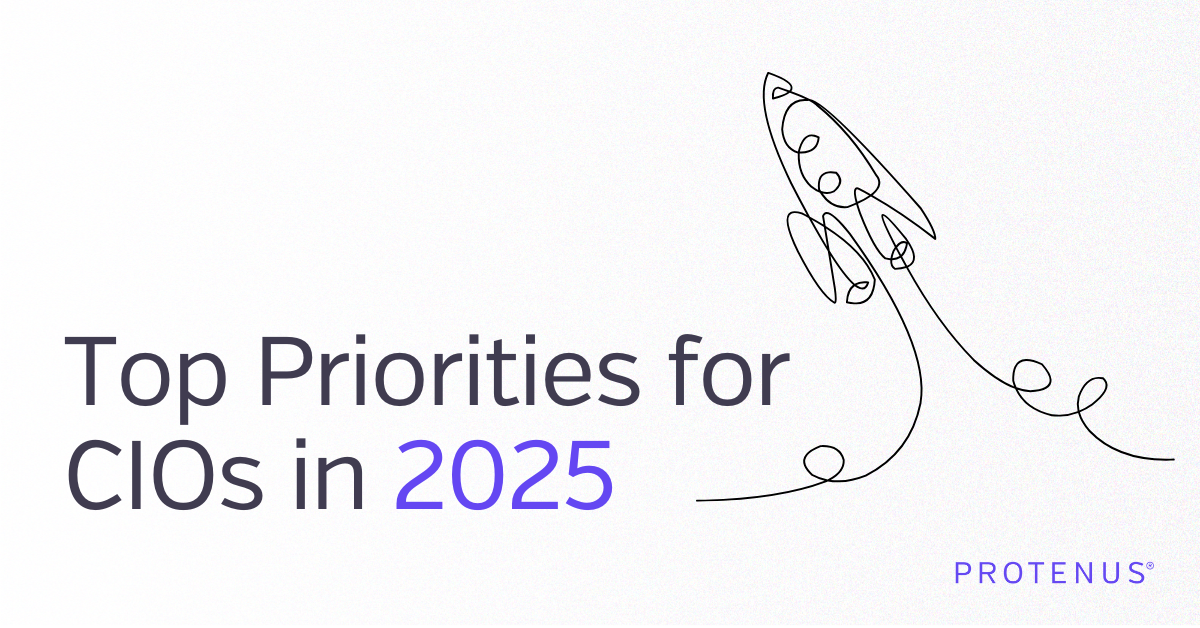Share this

Resilience Takes Practice; Here’s What We’re Learning
by Megan Emhoff, Chief People Officer, Protenus on October 6, 2020
The internet is flooded with blog posts, webinars, guides, data, “fixes,” frameworks, and best practices about building a resilient business and healthy company culture. But without veering into trite phrases, broad generalizations, or cliche corporate jargon, it can be difficult to know the tactical steps to build resiliency and maintain a healthy culture during difficult times, let alone a global pandemic.
Resilience is a team effort
Since moving to a fully-remote environment in March, we’ve tried to explore and understand each employee’s personal situation as well as their connection to their team and their work. This thoughtful assessment, in the form of a recent “listening tours,” feedback surveys, company-wide AMA’s, and manager 1:1s, has proven immensely helpful in providing insight into how the team is faring after nearly seven months of fully remote work. This may seem like a time consuming exercise (and in some ways it is), but we believe it is important to regularly make an individual connection with each person at Protenus. We’ve committed to investing in the whole person when they join the team and during this time, especially during this time, it’s as important as ever. The individuals on our team are the first, and most important, indicator of our strength as a business so it seems reasonable that some of the same factors that predict individual resilience, would be strong signals of our organizational resilience as well.
Only after connecting with every single person on an individual basis, were we able to step back and take a holistic view of the company’s resilience at a macro level.
At the beginning of the pandemic, the majority of our team seamlessly transitioned from spending time in the office with colleagues to a fully remote environment. Our culture has always been collaborative (it’s one of the words we hear most often used by our team when describing the environment here). This was even more evident as members of the team took the initiative to create opportunities to connect throughout the week and provide support to one another.
People organized virtual coffee breaks, happy hours, game nights, talent shows for kids, and new slack channels -- all with the goal of maintaining a support network and bolstering the culture we’ve all come to rely on and value. One poignant example is the #family-life Slack channel which was created initially to share photos or humorous excerpts from life outside of work, but has been instrumental during the pandemic as colleagues seek advice for managing virtual school and balancing a full-time work schedule. The team also organized a virtual talent show to provide a fun activity for kids while their parents attended meetings, etc. throughout the day. This show was “judged” by a panel of Protenus pets (another very important part of our culture).
Recent data from our team survey seems to indicate the team (98%) feels well-supported by the company during COVID-19. But more importantly, every team member who completed our feedback survey stated they know there are people at Protenus who care about them. Supporting each other at work provides a meaningful benefit because helping others is one of the things that increases people’s resilience, psychologists believe. This has been an incredible learning experience because, until recently, we’ve had very few opportunities to truly assess the resilience of our team.
The resilient team
At its core, resilience is all about responding to and adapting within a changing environment. Since the company was founded in 2014, Protenus has aspired to an operational strategy known as a “team of teams,” a concept popularized by Stanley McChrystal, U.S. Army General (ret.), in his book, Team of Teams: New Rules of Engagement for a Complex World.
Fundamentally, this strategy champions the idea that companies that empower employees to make decisions that impact the most critical needs of the business will be more operationally resilient. While there are many ways we attempt to empower the team, one of the biggest ways is through structured, routine opportunities to align everyone at Protenus with the same information and insight into our strategy.
Each Monday morning we hold an I/O Forum (Insights & Operations), which is a weekly exercise to reinforce and assure a shared understanding of what matters most. We make company updates and announcements followed by KPIs and status reports from our Marketing, Sales, Implementations, Success, and Product teams.
From our team guide:
I/O is not the place you hear everything for the first time. Instead, it should be a synthesis of everything we know as a company, ensuring we’re all on the same page. We also use this time to proactively solve problems, introduce new team members, highlight stellar work, and dive into specific topics that impact the success of Protenus.
The emphasis on clearly communicating strategic priorities and focusing on the most critical outcomes (rather than on how and when tasks are completed) has been an intentional and integral part of our operations before the pandemic, but it’s even more important today.
With teams operating remotely in a changing environment (and sometimes communicating or making decisions asynchronously) this is one way we can ensure everyone has the information they need to to make decisions faster on their own.
I/O doesn’t just remind our team of our goals and priorities as a company. It’s a consistent reminder that we want to empower everyone with information. Since the pandemic, this weekly meeting has been an important anchor for me. At a very basic level, these Monday mornings reinforce our priorities and remind me that we are a team. It’s reassuring to look at a virtual room of people and know that there are people who care about me personally and professionally, and who have the same goals as I do. It reminds me that we do work that matters, that our customers need us, that lots of other people have the same stresses at home that I do, and most importantly, that I’m not alone. It’s as simple as that.
But supporting each other is only part of how we’re weathering this crisis. Our customers are healthcare organizations and the challenges they face are more daunting than we can imagine. Our mission is to serve them and we’re doing what we can to support them by adapting to new challenges and approaching each day with a strong sense of purpose about our work and a strong conviction for why it matters.
Our next normal
As we assess our team’s response to this global crisis, it’s clear resilience isn’t just something we only see in the rearview mirror. Building resilience takes practice and is a skill developed during periods of adversity. Our team’s response to current challenges helps strengthen our view of the future and informs how we create the next version of “normal” at Protenus.
It doesn’t seem like the pandemic will end anytime soon and the next several months may look nothing like the first half of 2020. We don’t know what the future holds, but as a company, we’re taking a cue from so many of the resilient folks on our team by checking on each other, assessing and adjusting our priorities, and communicating about what matters most.
So while the happy hours and game nights are important ways our team supports each other, it goes much deeper than that. We’ve found that our values show up in spite of (and in our best moments, as a result of) adversity. We see our team simplifying workflows, working with incredible integrity, humbly asking for help from their colleagues, encouraging one another and sharing accountability and actionable insights, and thoughtfully considering the needs of our team above individual interests.
Our values are instilled in everything we do at Protenus and they have become even more meaningful as a team as we do our best to live and work through this challenging time. In keeping with our value of simplicity, sometimes the best thing we can do to create a resilient team is to provide some gentle nudges to get people off Zoom, encourage some time in fresh air (away from their laptops), and refocus their energy. Because as a team, and as a company, we are in this together for the long-haul.
If you're interested in joining the Protenus team, view our Careers page to view current job opportunities.
Share this
- December 1, 2024 (3)
- November 1, 2024 (1)
- October 1, 2024 (2)
- September 1, 2024 (1)
- August 1, 2024 (1)
- July 1, 2024 (1)
- June 1, 2024 (1)
- May 1, 2024 (1)
- March 1, 2024 (2)
- February 1, 2024 (3)
- January 1, 2024 (1)
- December 1, 2023 (1)
- November 1, 2023 (3)
- October 1, 2023 (3)
- September 1, 2023 (1)
- August 1, 2023 (1)
- July 1, 2023 (2)
- April 1, 2023 (1)
- March 1, 2023 (1)
- February 1, 2023 (1)
- December 1, 2022 (3)
- November 1, 2022 (3)
- October 1, 2022 (1)
- September 1, 2022 (1)
- August 1, 2022 (2)
- June 1, 2022 (4)
- May 1, 2022 (5)
- April 1, 2022 (1)
- March 1, 2022 (4)
- February 1, 2022 (3)
- November 1, 2021 (2)
- October 1, 2021 (3)
- September 1, 2021 (3)
- August 1, 2021 (3)
- July 1, 2021 (4)
- June 1, 2021 (2)
- May 1, 2021 (2)
- April 1, 2021 (2)
- March 1, 2021 (5)
- February 1, 2021 (1)
- January 1, 2021 (1)
- December 1, 2020 (1)
- November 1, 2020 (2)
- October 1, 2020 (2)
- September 1, 2020 (3)
- August 1, 2020 (2)
- July 1, 2020 (2)
- June 1, 2020 (6)
- May 1, 2020 (3)
- April 1, 2020 (4)
- March 1, 2020 (2)
- February 1, 2020 (4)
- January 1, 2020 (2)
- December 1, 2019 (2)
- November 1, 2019 (1)
- October 1, 2019 (1)
- September 1, 2019 (1)
- August 1, 2019 (1)
- June 1, 2019 (1)
- April 1, 2019 (1)
- February 1, 2019 (1)
- January 1, 2019 (1)
- December 1, 2018 (2)
- November 1, 2018 (2)
- October 1, 2018 (2)
- September 1, 2018 (3)
- August 1, 2018 (1)
- July 1, 2018 (2)
- June 1, 2018 (2)
- May 1, 2018 (1)
- April 1, 2018 (1)
- March 1, 2018 (2)
- February 1, 2018 (6)
- January 1, 2018 (2)
- September 1, 2017 (2)
- August 1, 2017 (2)
- June 1, 2017 (2)
- May 1, 2017 (1)
- April 1, 2017 (1)
- March 1, 2017 (2)
- February 1, 2017 (5)
- January 1, 2017 (2)
- December 1, 2016 (3)
- November 1, 2016 (5)
- October 1, 2016 (4)
- September 1, 2016 (8)
- August 1, 2016 (4)
- July 1, 2016 (4)
Subscribe by email
You May Also Like

Conserving Resources with Compliance Analytics: A 5-Step Implementation Guide

Enabling Greater Healthcare Efficiency with Protenus AI Technology

.png?width=1000&height=140&name=Bluesight%20%2B%20Protenus%20Logo%20%20(1).png)